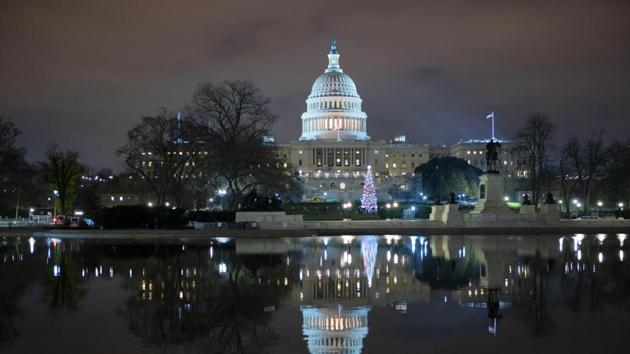What’s in the $900 billion US Covid-19 aid package
According to a summary released by Democratic house speaker Nancy Pelosi and Senate minority leader Chuck Schumer, here are the details of the package
US congressional leaders reached an agreement on a $900 billion package on Sunday which will provide the first new aid in months to an economy hammered by the coronavirus pandemic. The US Congress was working under a deadline of midnight Sunday -- needing to reach consensus both on assistance to hard-pressed American households and companies and on the 2021 federal budget in order to avoid a government shutdown.

“We have agreed to a package of nearly $900 billion. It is packed with targeted policies to help struggling Americans who have already waited too long,” Republican Senate leader Mitch McConnell said in a statement.
Democratic House speaker Nancy Pelosi and Senate minority leader Chuck Schumer confirmed an agreement had been reached with Republicans and the White House on a deal that “delivers urgently needed funds to save the lives and livelihoods of the American people as the virus accelerates.”
According to a summary released by Democratic house speaker Nancy Pelosi and Senate minority leader Chuck Schumer, here are the details of the package:
Checks in the mail: The bill includes $166 billion in new direct payments of up to $600 per adult and child, for individuals making up to $75,000 a year and $1,200 for couples making up to $150,000 a year. The bill expands direct payments to mixed-status households.
More unemployment benefits: An additional $300 per week for some unemployment recipients.
US postal service grant: Congress agrees to convert a $10 billion loan approved in March into direct funding for USPS without requiring repayment.
Payroll loans: $284 billion for government payroll loans, including expanded eligibility for nonprofits and newspaper and TV and radio broadcasters, $15 billion for live venues, independent movie theatres, and cultural institutions and $20 billion for targeted disaster grants
Back-to-school funding: $82 billion for colleges and schools, including for heating-and-cooling system upgrades to mitigate virus transmission and reopen classrooms, and $10 billion for childcare assistance. Includes $54.3 billion for K-12 schools and $22.7 billion for higher education
Business meal write-offs: A new tax break for business meal expenses, nicknamed the “three-martini” deduction.
Ending surprise medical billing: Insured patients only need to pay in-network costs when an emergency or other issue forces them to use a medical provider who isn’t covered by their network.
Transport industry help: $45 billion for transportation aid, including $15 billion to U.S. passenger airlines for payroll assistance, $14 billion for transit systems, $10 billion for state highway funding, $2 billion for airports, $1 billion for airline contractors and $1 billion for passenger railroad Amtrak.
Rent and eviction aid: $25 billion for rent and utility payment assistance for people struggling to stay in their homes, and an extension of the eviction moratorium until Jan. 31. States will receive a minimum of $200 million in assistance.
Vaccine distribution aid: $30 billion to support procurement and distribution of the vaccine, “ensuring it’s free and rapidly distributed to everyone,” as Schumer said.
More to fight hunger: $13 billion for food assistance, including additional funding for food banks and senior nutrition programs, college student access to the federal government’s Supplemental Nutrition Assistance Program.
Farm aid: Another $13 billion for direct payments, purchases and loans to farmers and ranchers.
Expanded Pell Grants: New grants for college tuition, which would reach 500,000 new recipients.
Internet access: $7 billion to give more Americans broadband internet access, including $1.9 billion to replace telecom network equipment that poses national security risks and $3.2 billion for a new temporary benefit program to help low-income Americans get access to broadband service
Global virus alliances: $4 billion for an international vaccine alliance
Tax credits: Enhanced tax credits to encourage low-income housing construction, businesses to keep employees on the payroll, employers to provide paid sick leave, and for low-income workers.
Minority-owned businesses: $12 billion for minority-owned and very small businesses that struggled to access earlier Payroll Protection Program financing.
(With agency inputs)



